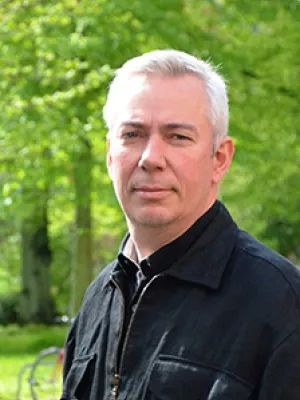
Matthias Baier
Universitetslektor

Structuring Sustainability Science
Författare
Summary, in English
It is urgent in science and society to address
climate change and other sustainability challenges such as
biodiversity loss, deforestation, depletion of marine fish
stocks, global ill-health, land degradation, land use change
and water scarcity. Sustainability science (SS) is an attempt
to bridge the natural and social sciences for seeking creative
solutions to these complex challenges. In this article,
we propose a research agenda that advances the
methodological and theoretical understanding of what SS
can be, how it can be pursued and what it can contribute.
The key focus is on knowledge structuring. For that purpose,
we designed a generic research platform organised as
a three-dimensional matrix comprising three components:
core themes (scientific understanding, sustainability goals,
sustainability pathways); cross-cutting critical and problem-
solving approaches; and any combination of the sustainability
challenges above. As an example, we insert four
sustainability challenges into the matrix (biodiversity loss,
climate change, land use changes, water scarcity). Based on
the matrix with the four challenges, we discuss three issues
for advancing theory and methodology in SS: how new
synergies across natural and social sciences can be created;
how integrated theories for understanding and responding
to complex sustainability issues can be developed; and how
theories and concepts in economics, gender studies, geography,
political science and sociology can be applied in SS.
The generic research platform serves to structure and create
new knowledge in SS and is a tool for exploring any set of
sustainability challenges. The combined critical and problem-
solving approach is essential.
climate change and other sustainability challenges such as
biodiversity loss, deforestation, depletion of marine fish
stocks, global ill-health, land degradation, land use change
and water scarcity. Sustainability science (SS) is an attempt
to bridge the natural and social sciences for seeking creative
solutions to these complex challenges. In this article,
we propose a research agenda that advances the
methodological and theoretical understanding of what SS
can be, how it can be pursued and what it can contribute.
The key focus is on knowledge structuring. For that purpose,
we designed a generic research platform organised as
a three-dimensional matrix comprising three components:
core themes (scientific understanding, sustainability goals,
sustainability pathways); cross-cutting critical and problem-
solving approaches; and any combination of the sustainability
challenges above. As an example, we insert four
sustainability challenges into the matrix (biodiversity loss,
climate change, land use changes, water scarcity). Based on
the matrix with the four challenges, we discuss three issues
for advancing theory and methodology in SS: how new
synergies across natural and social sciences can be created;
how integrated theories for understanding and responding
to complex sustainability issues can be developed; and how
theories and concepts in economics, gender studies, geography,
political science and sociology can be applied in SS.
The generic research platform serves to structure and create
new knowledge in SS and is a tool for exploring any set of
sustainability challenges. The combined critical and problem-
solving approach is essential.
Avdelning/ar
- LUCSUS
- Rättssociologiska institutionen
- Institutionen för naturgeografi och ekosystemvetenskap
- Humanekologi
- Statsvetenskapliga institutionen
- Teoretisk filosofi
- BECC: Biodiversity and Ecosystem services in a Changing Climate
Publiceringsår
2011
Språk
Engelska
Sidor
69-82
Publikation/Tidskrift/Serie
Sustainability Science
Volym
6
Issue
1
Länkar
Dokumenttyp
Artikel i tidskrift
Förlag
Springer
Ämne
- Law and Society
- Political Science
- Human Geography
- Social Sciences Interdisciplinary
Nyckelord
- Transdisciplinarity
- Critical research
- Sustainability pathways
- Problem-solving research
- Sustainability challenges
- Climate change
Status
Published
Projekt
- LUCID - Lund University Centre of Excellence for Integration of Social and Natural Dimensions of Sustainability
Forskningsgrupp
- LUCID - Lund University Centre of Excellence for Integration of Social and Natural Dimensions of Sustainability
ISBN/ISSN/Övrigt
- ISSN: 1862-4057